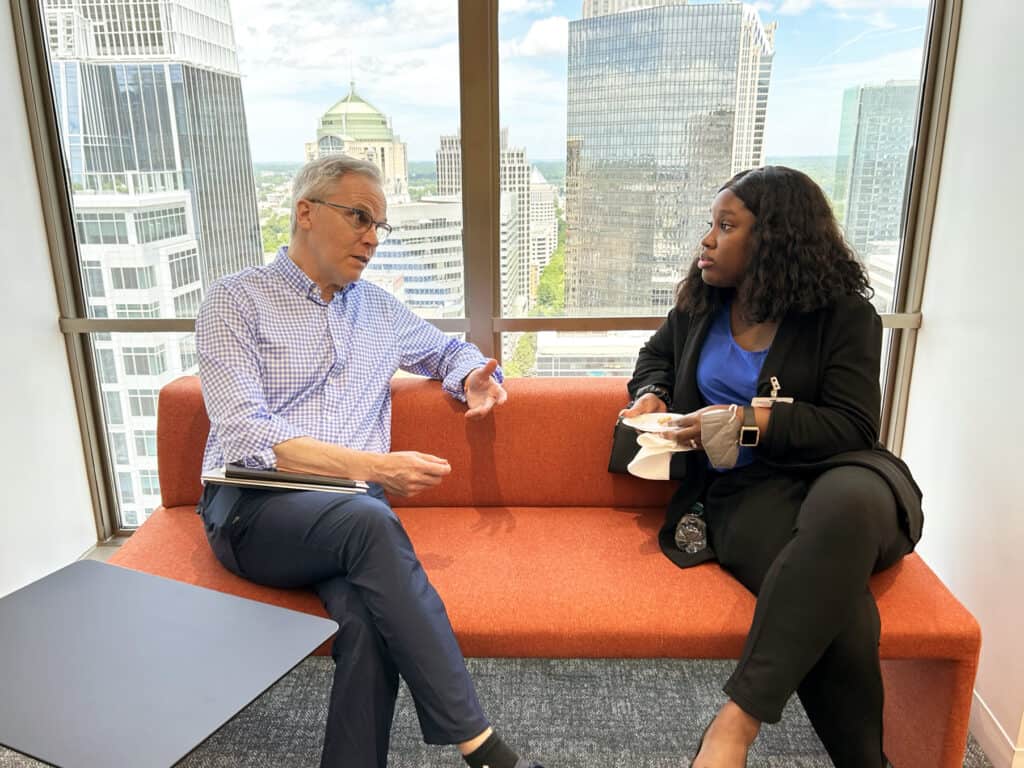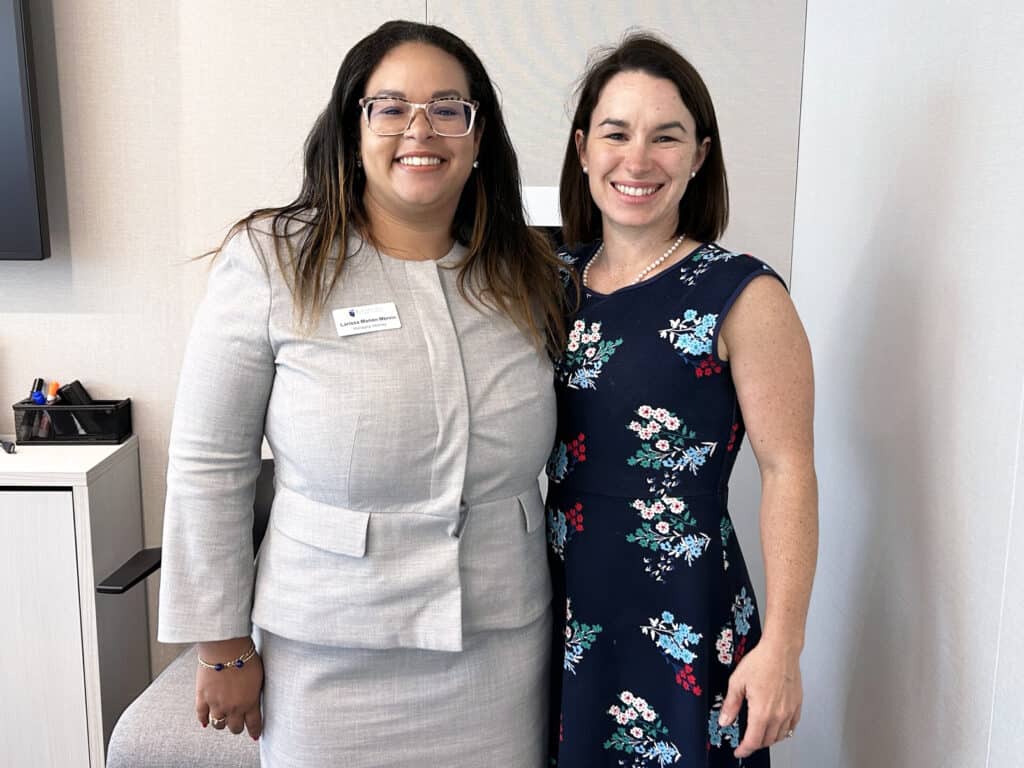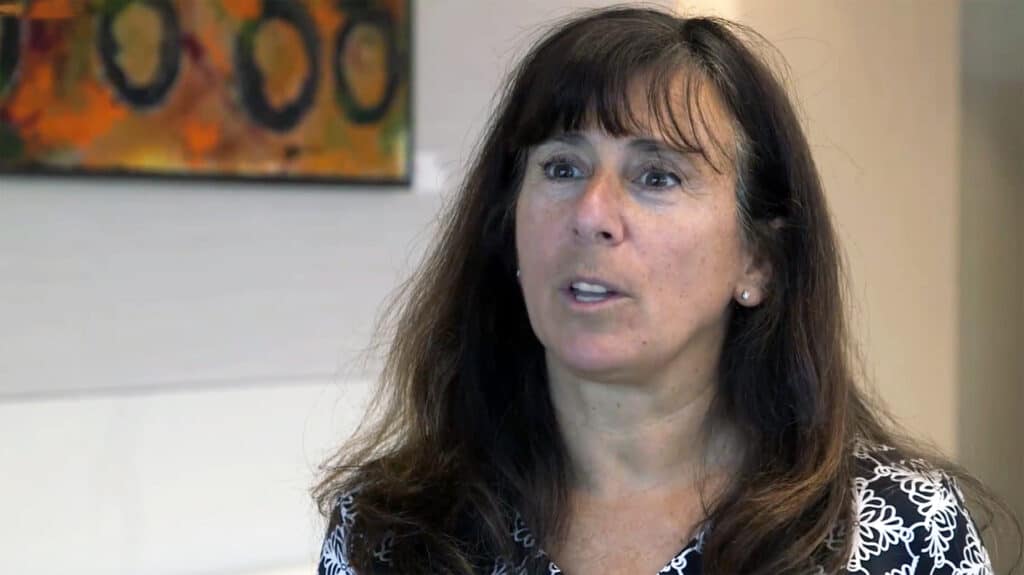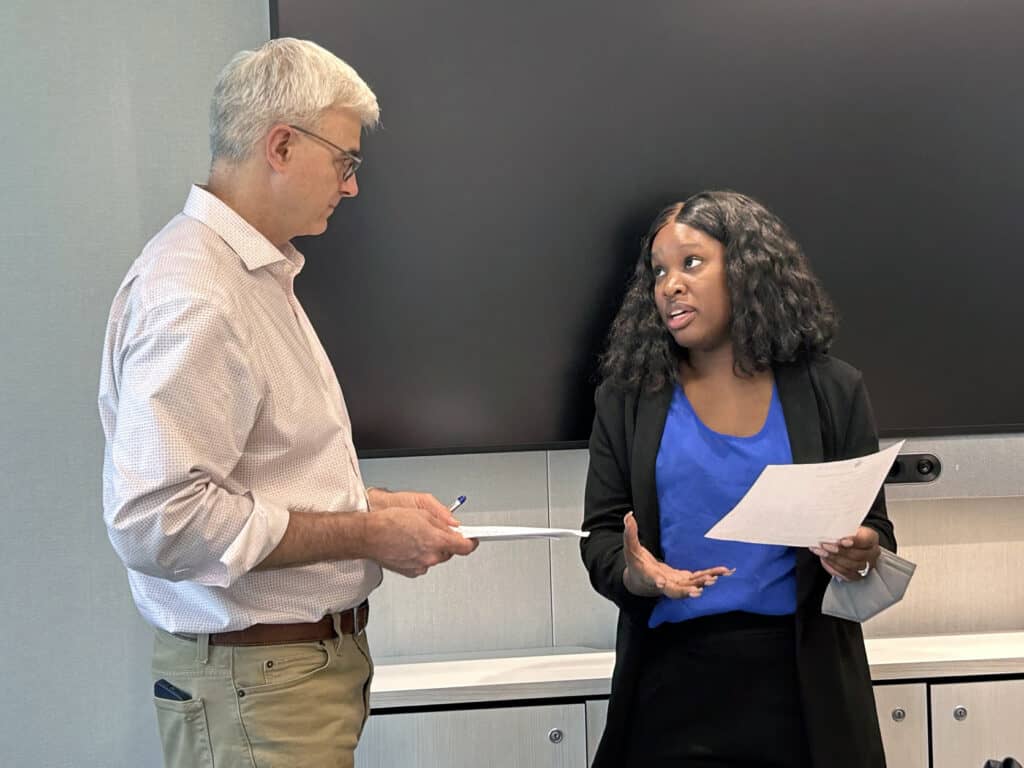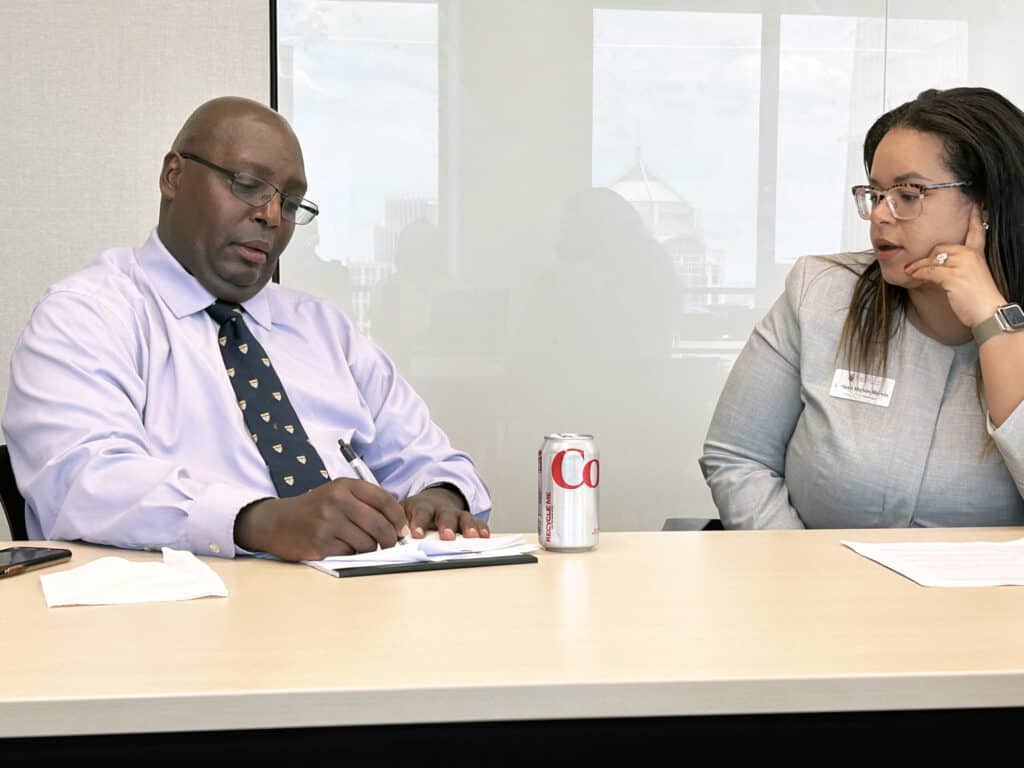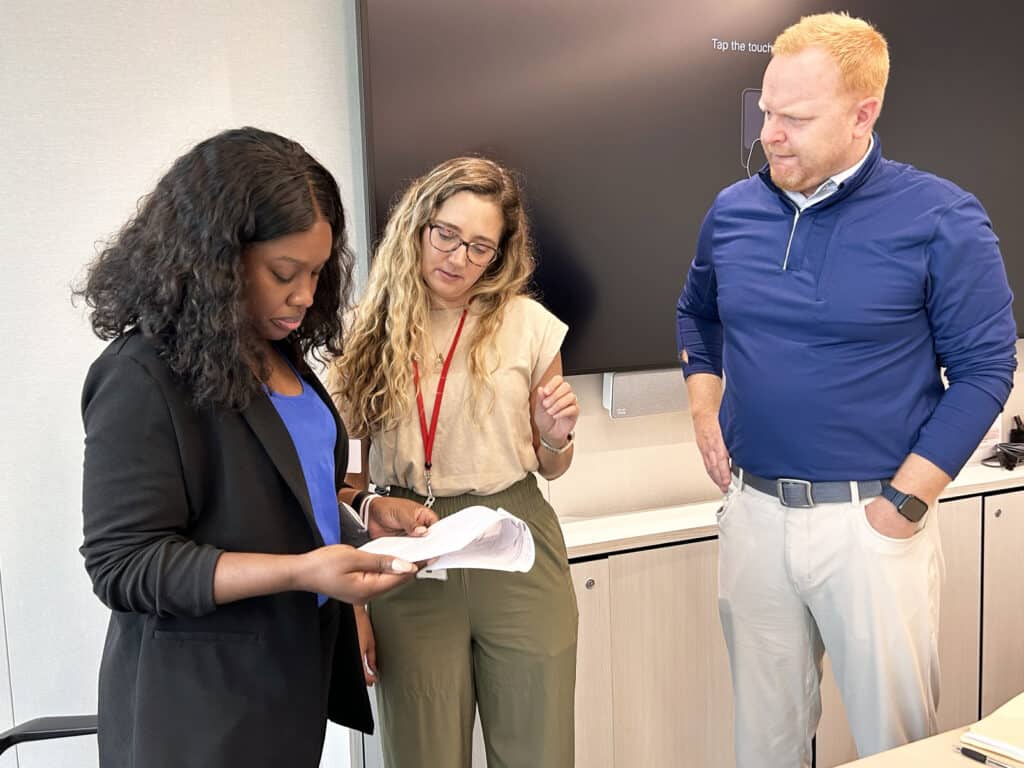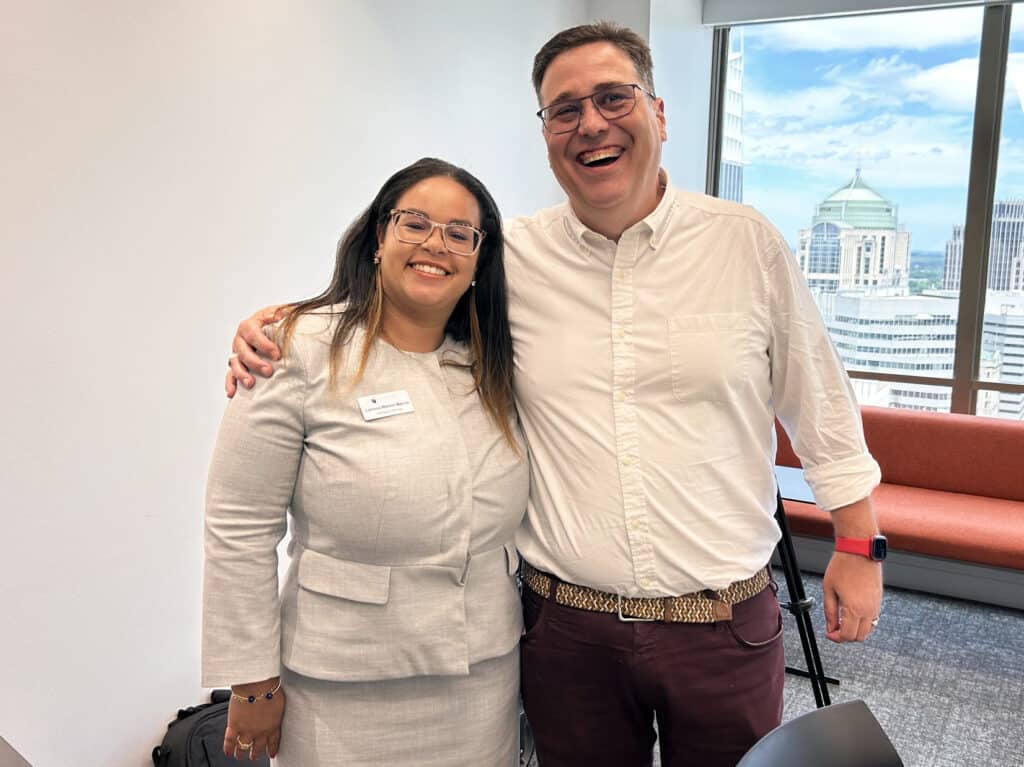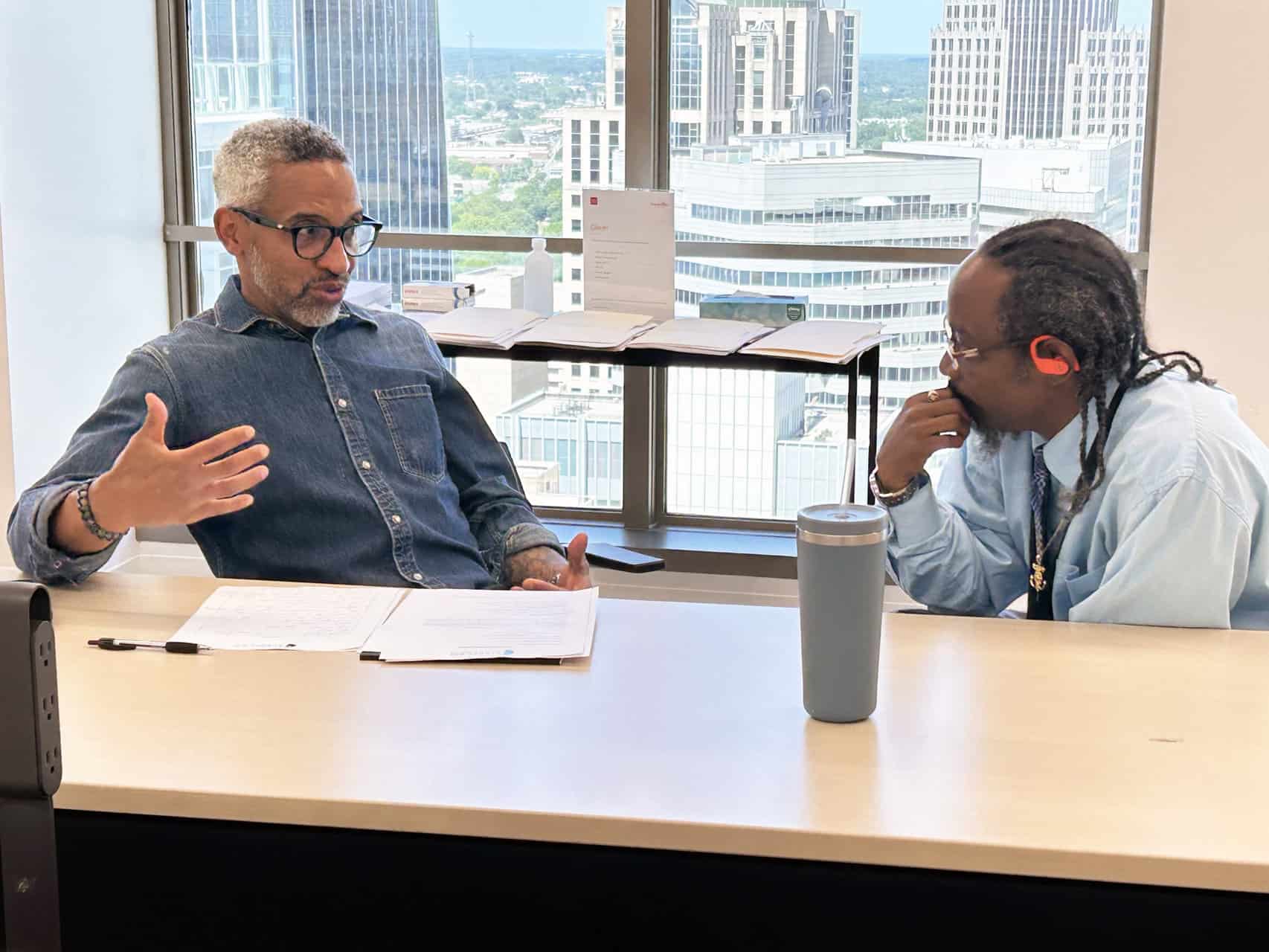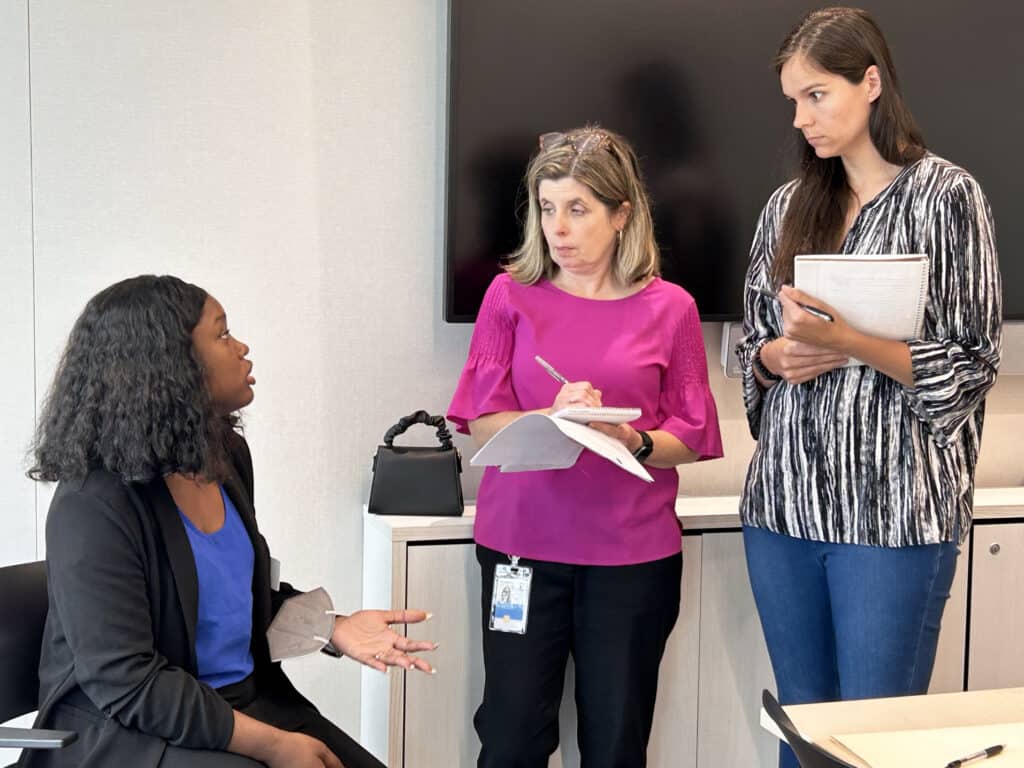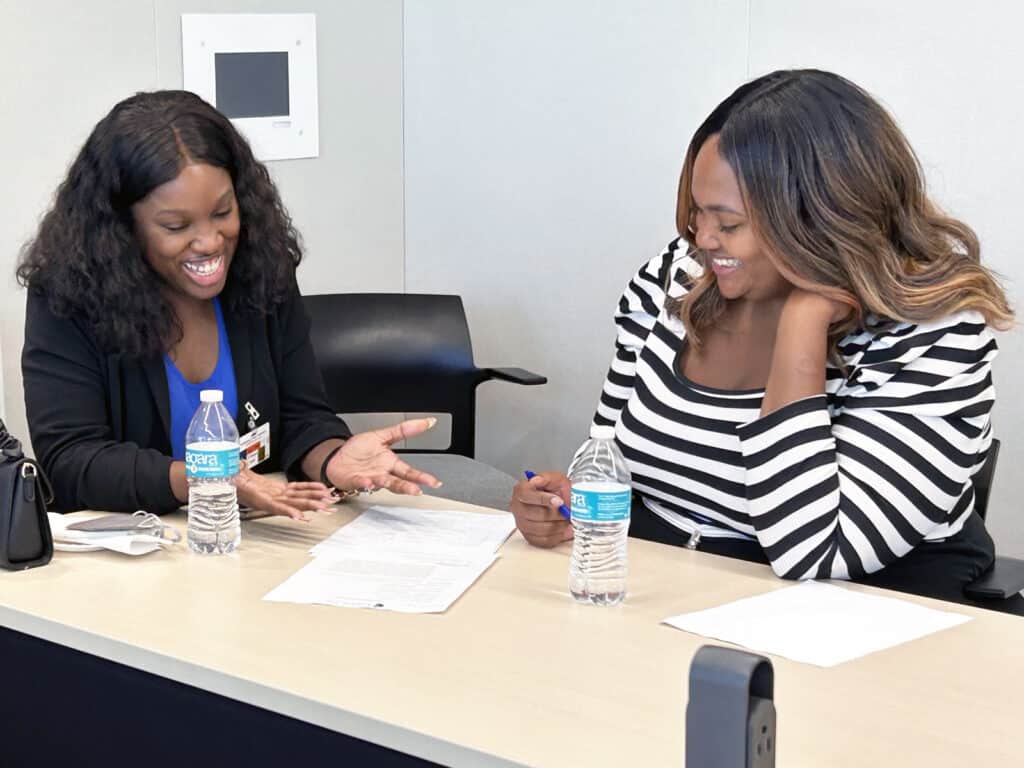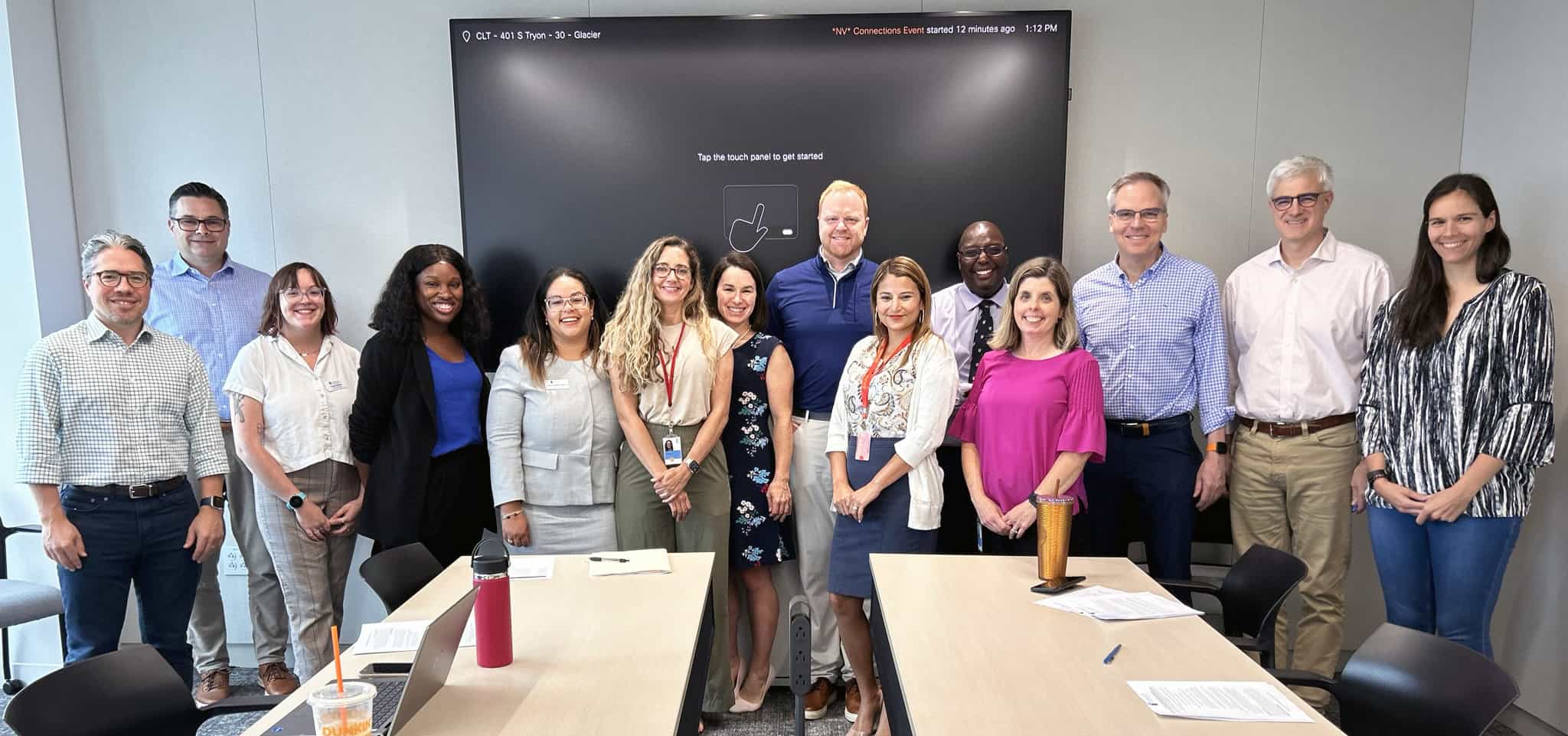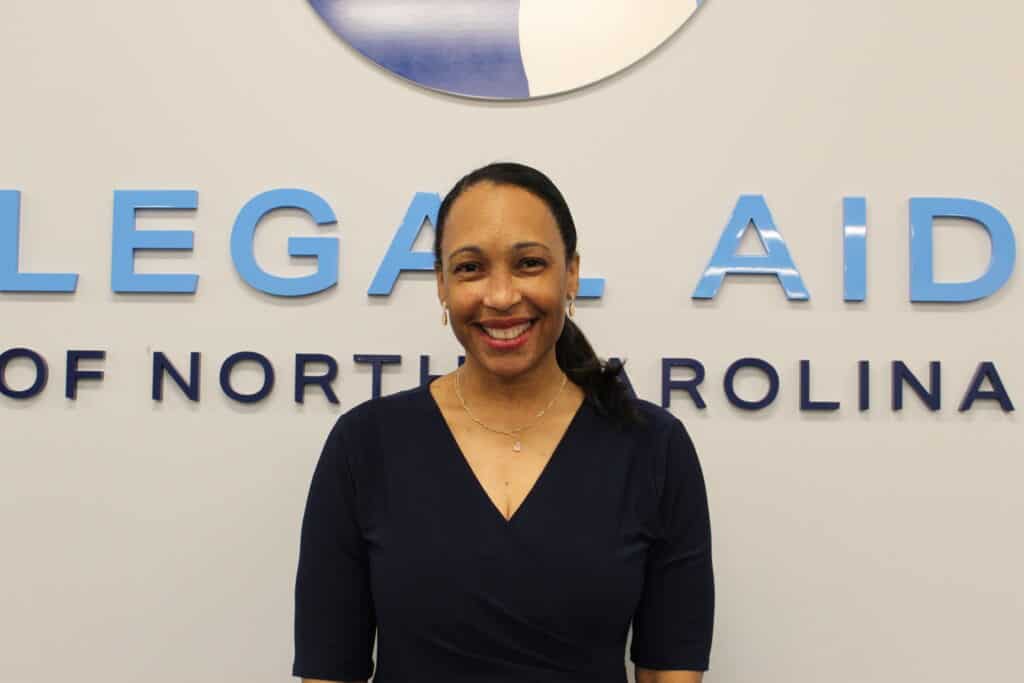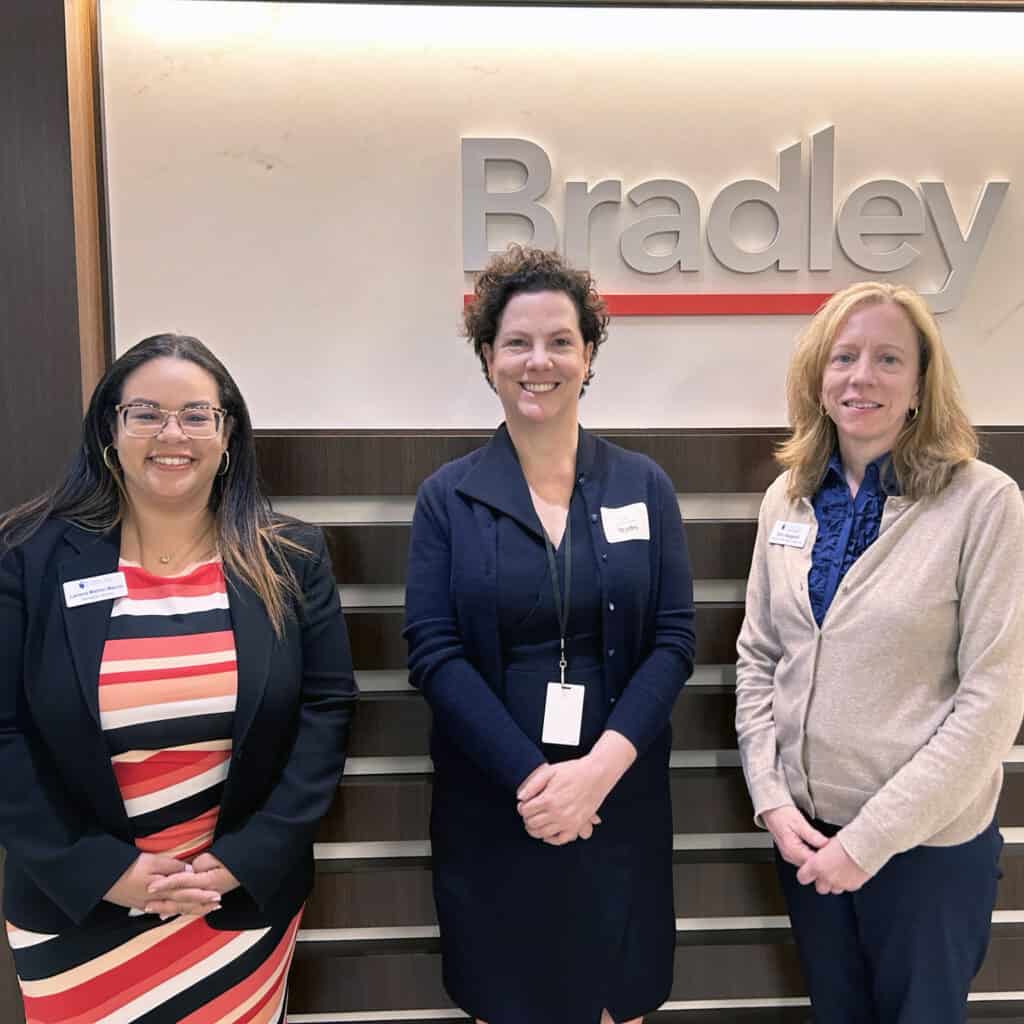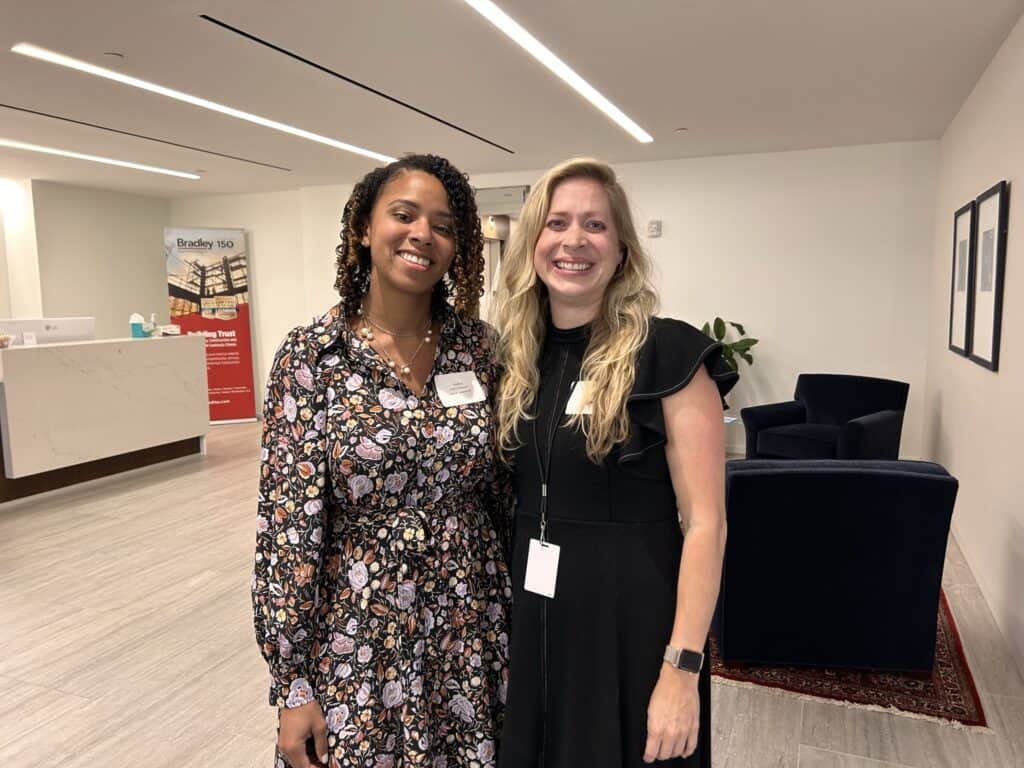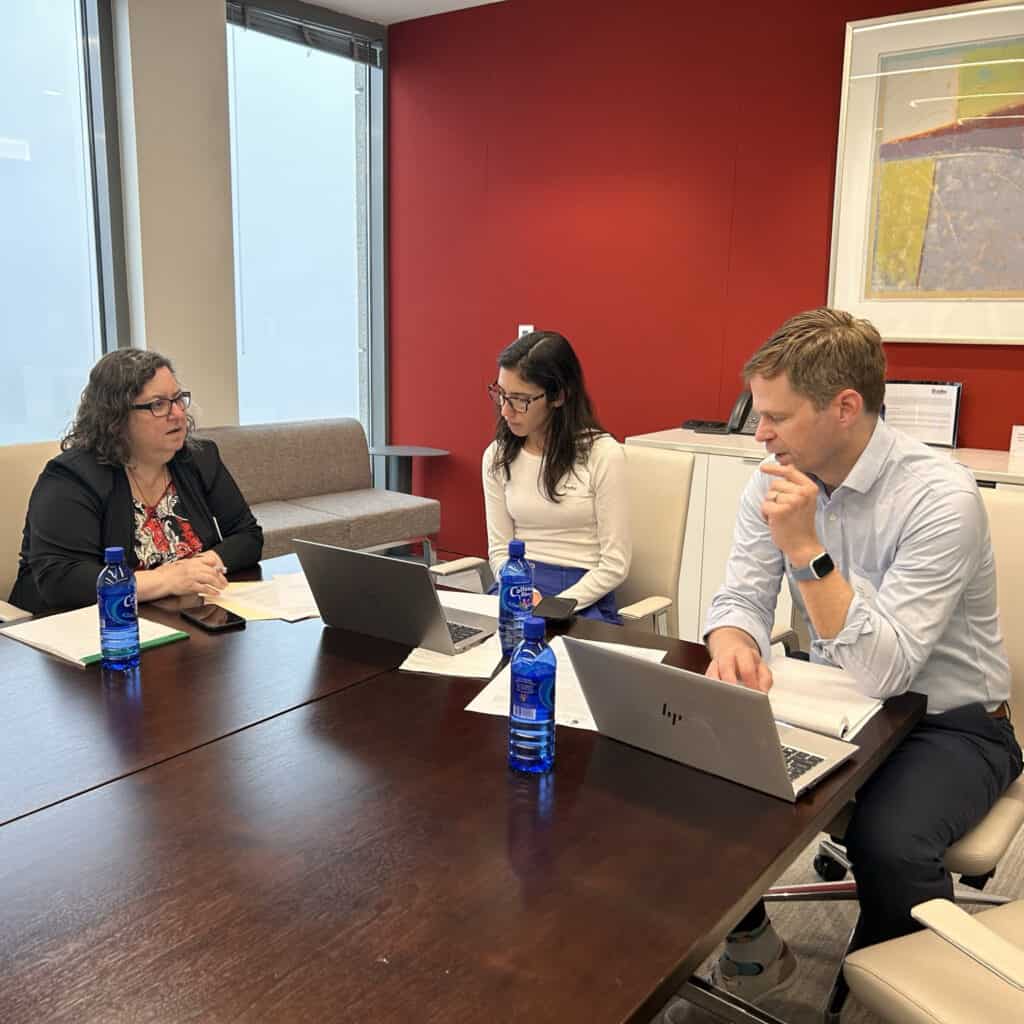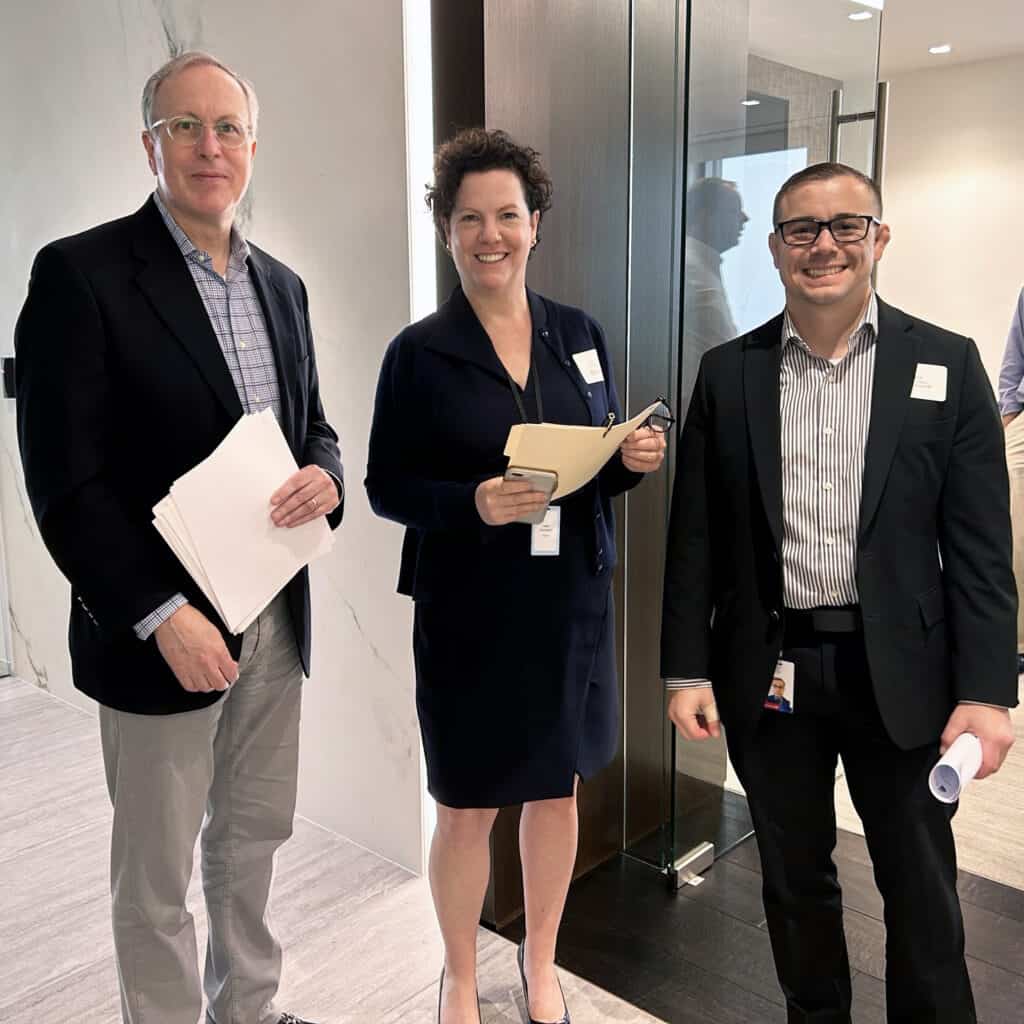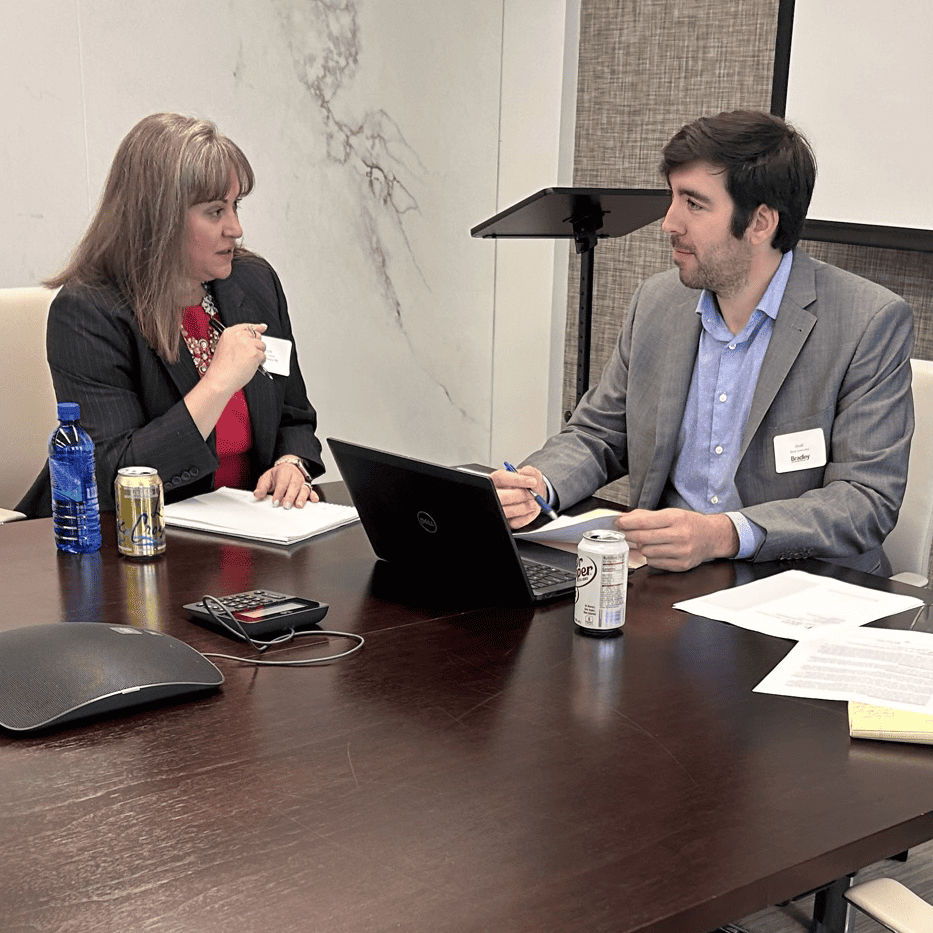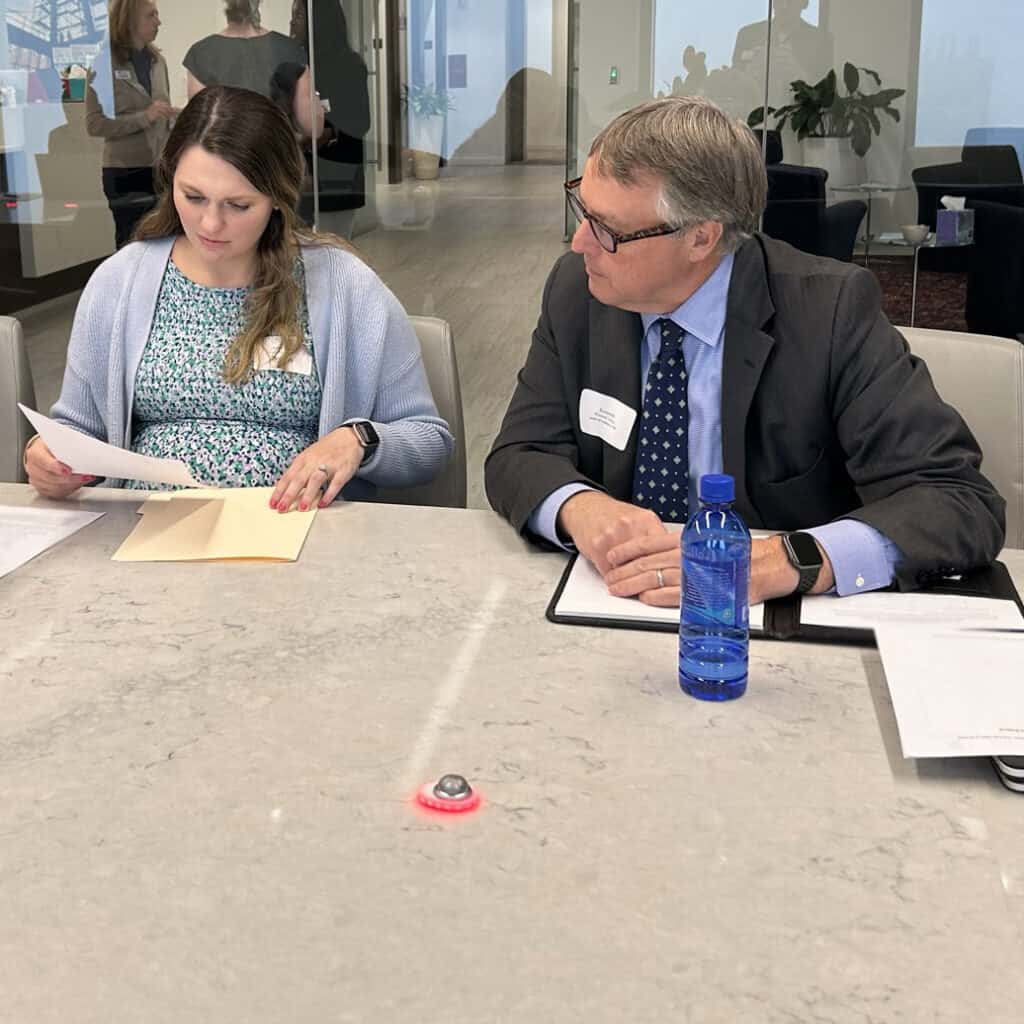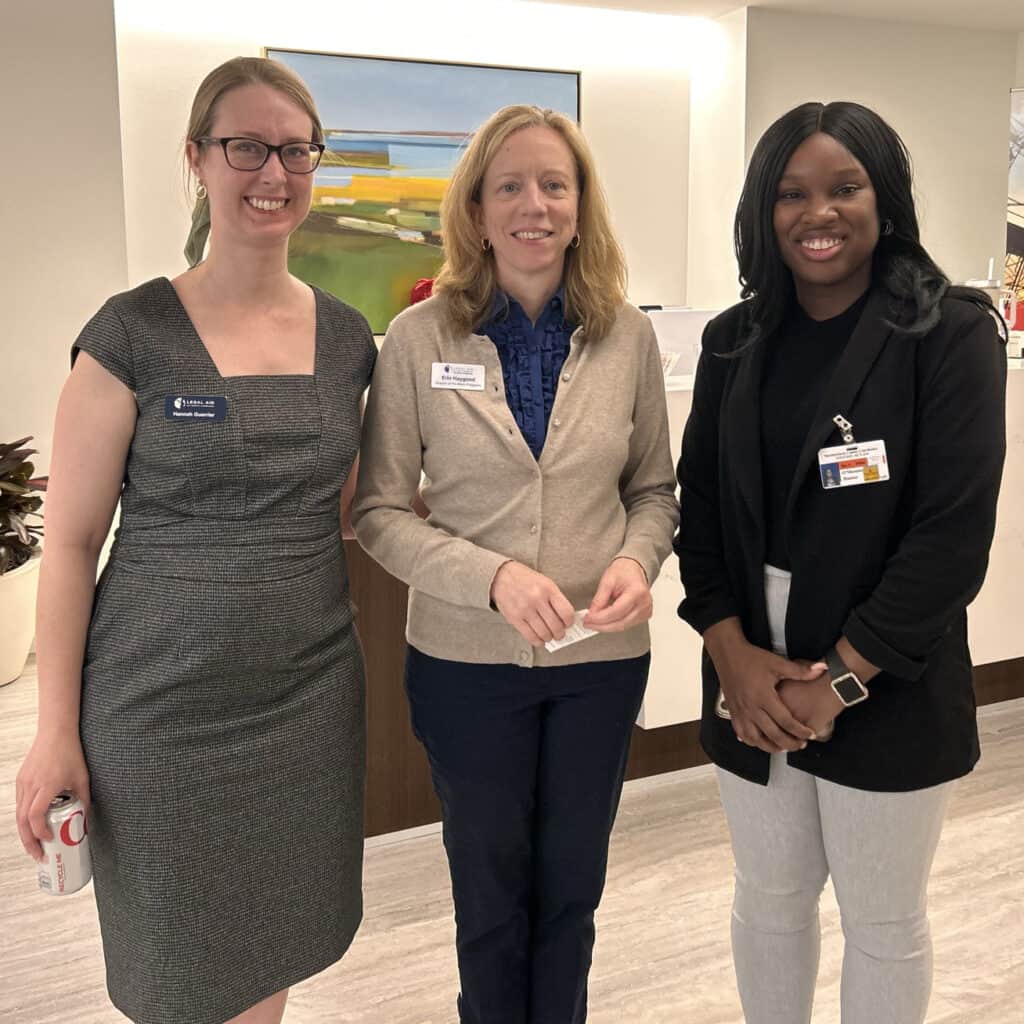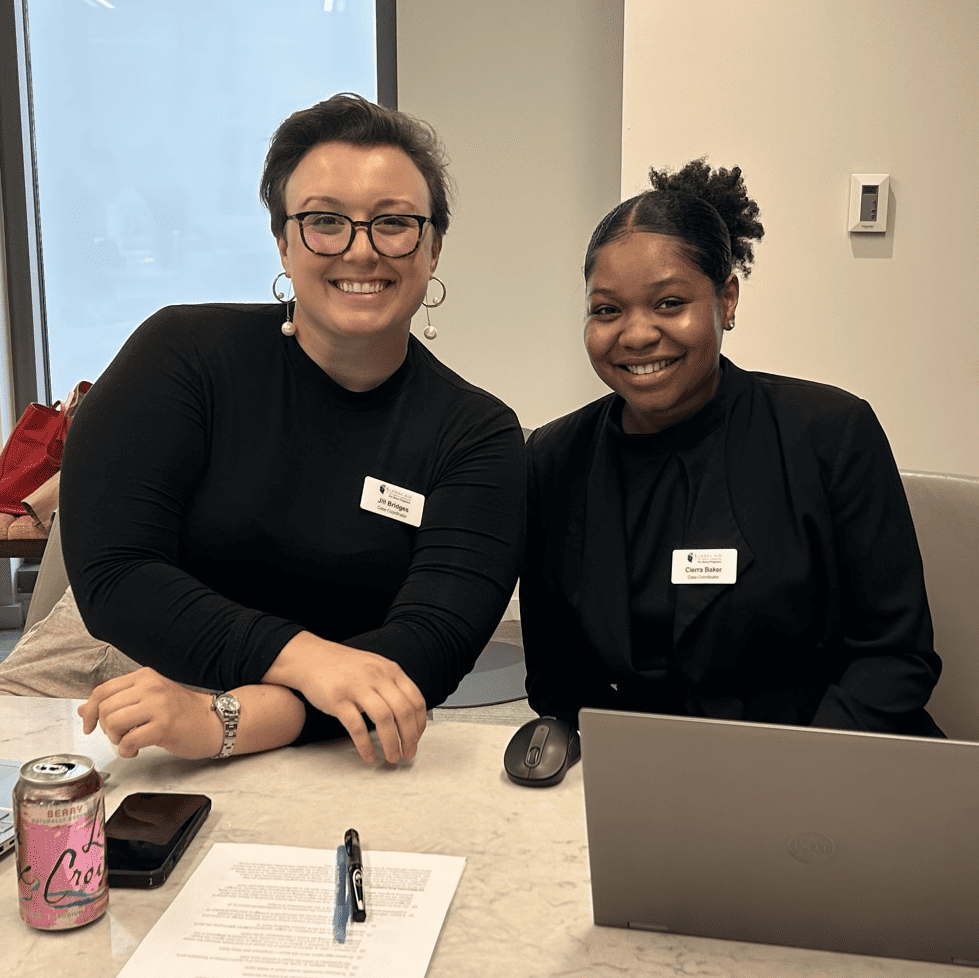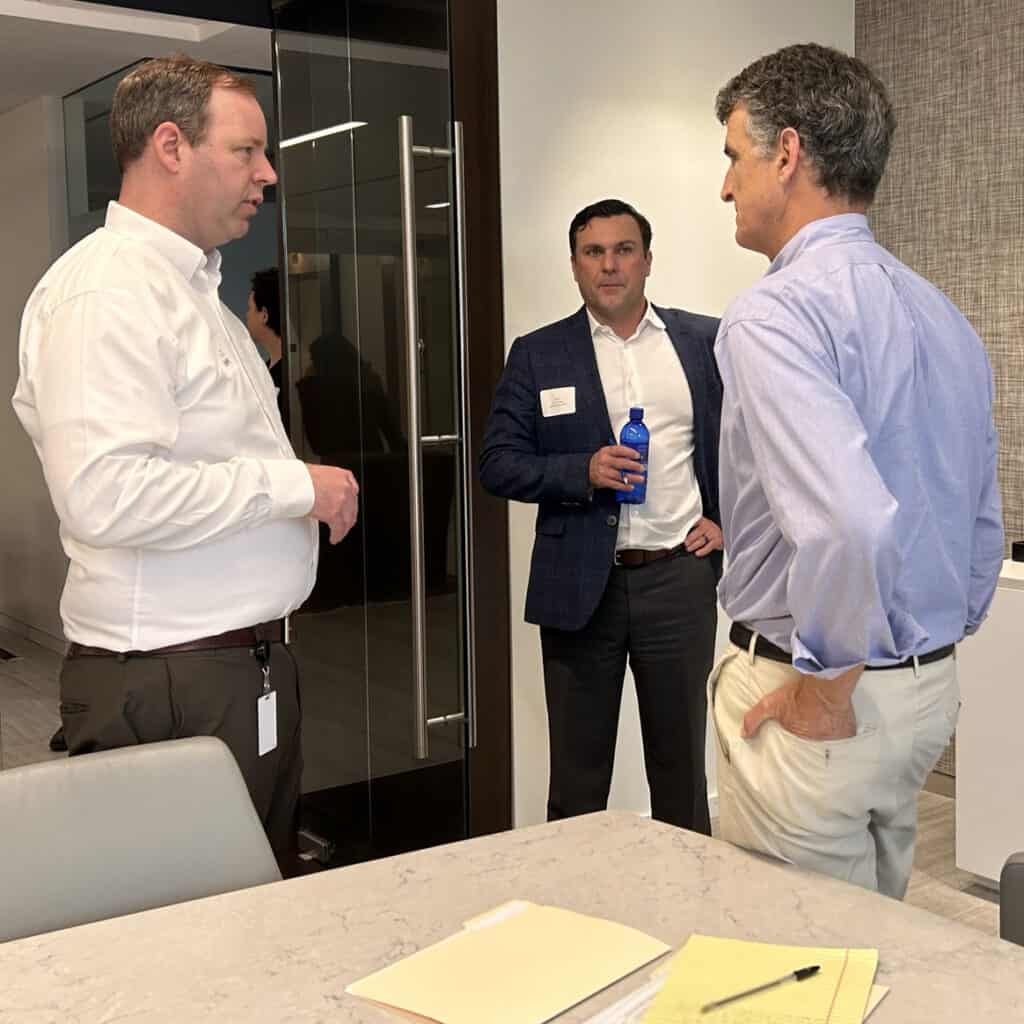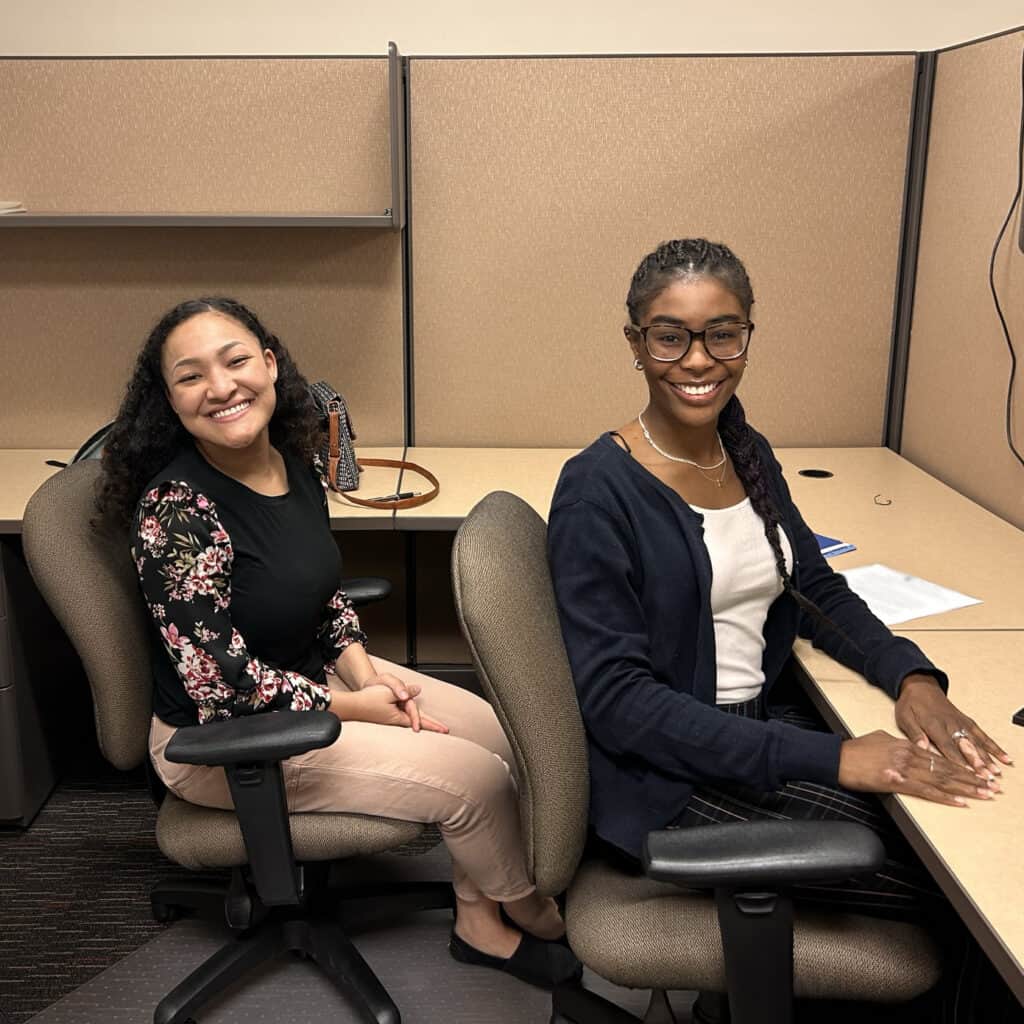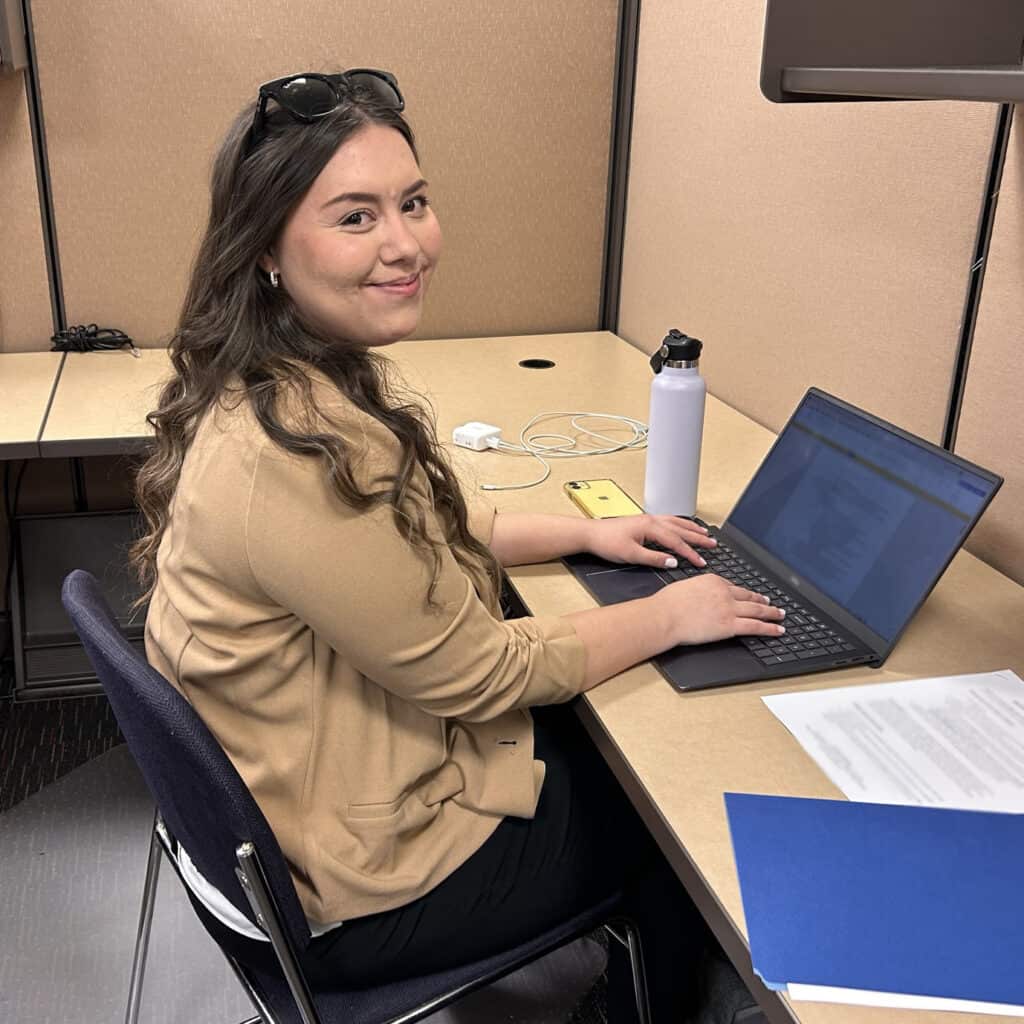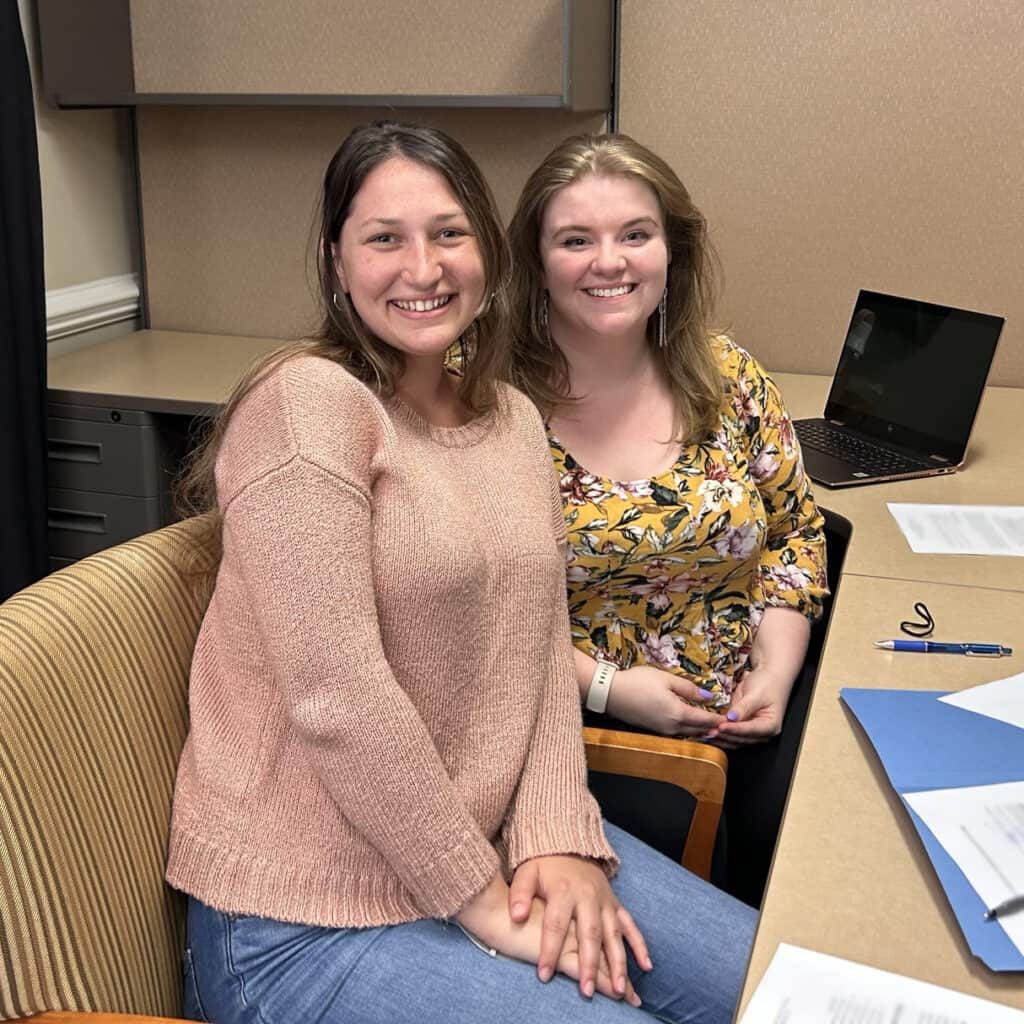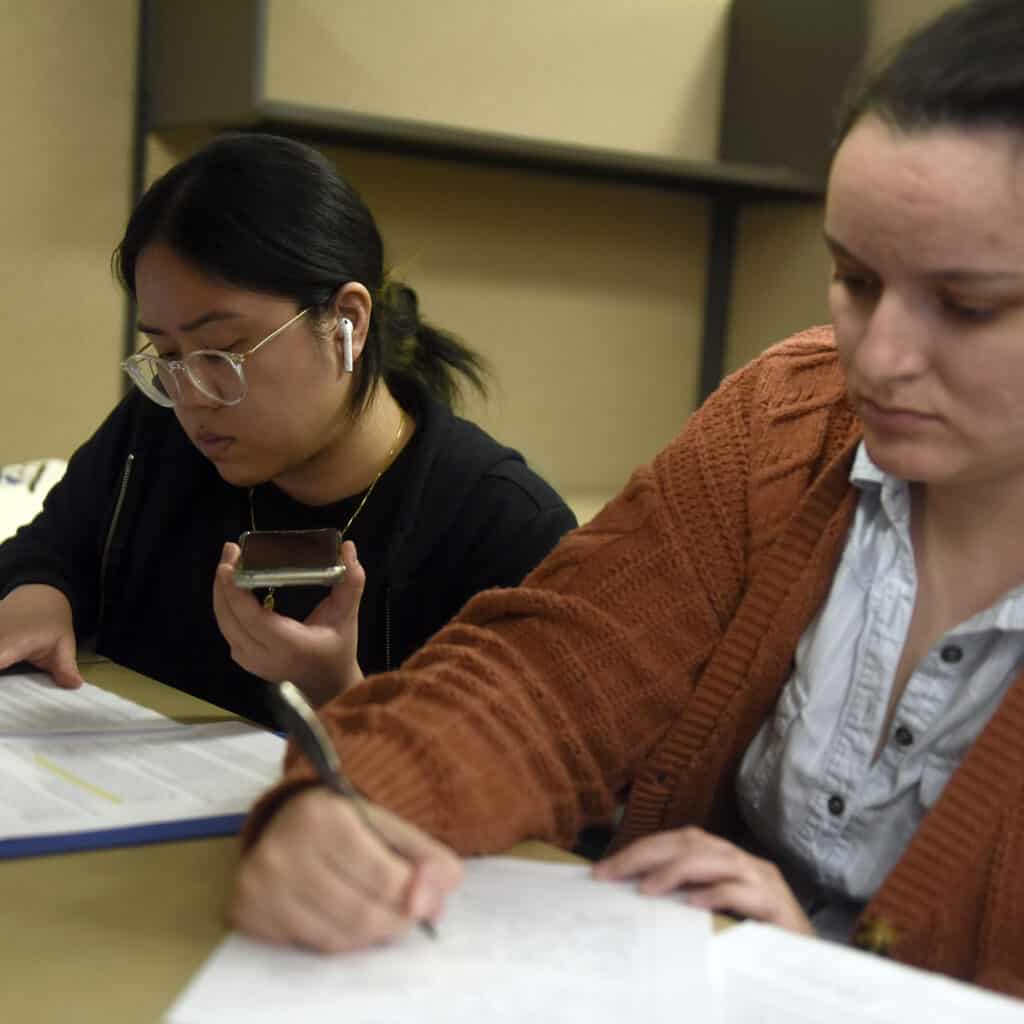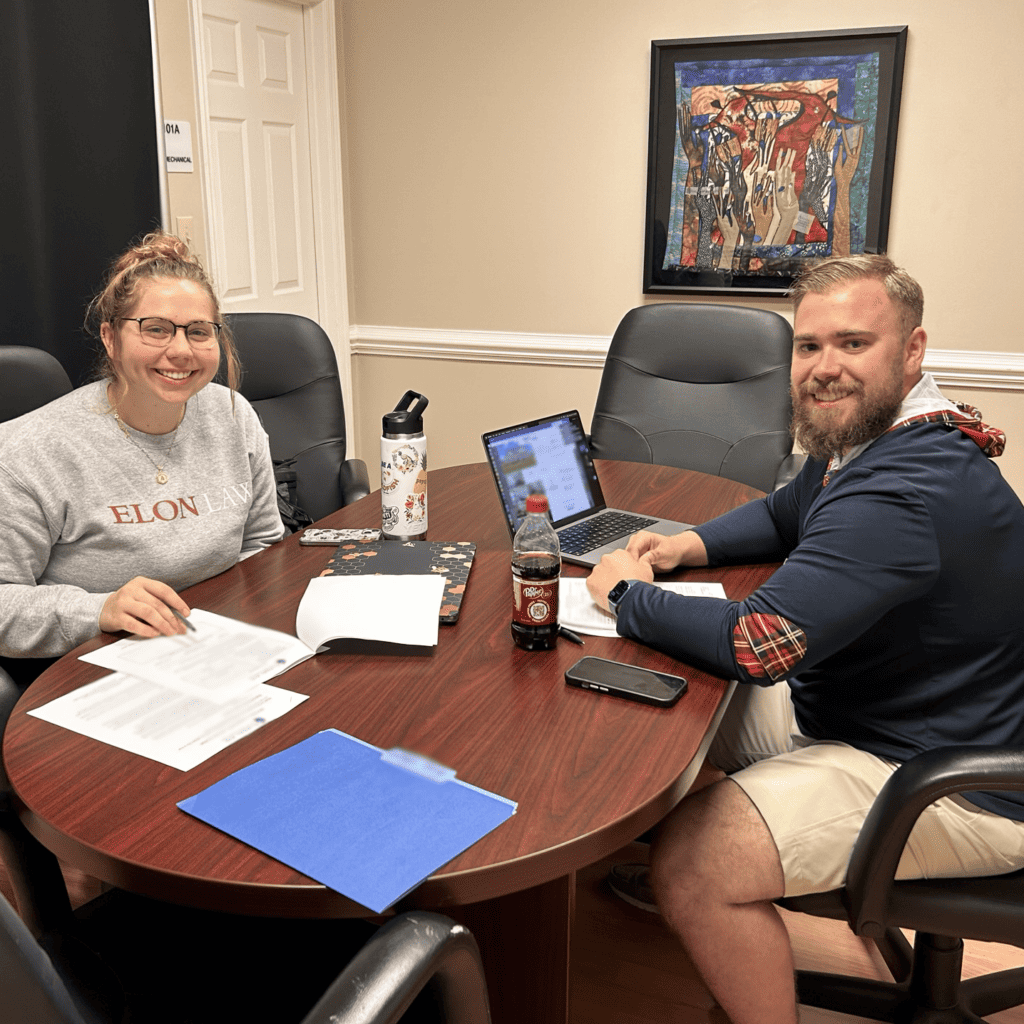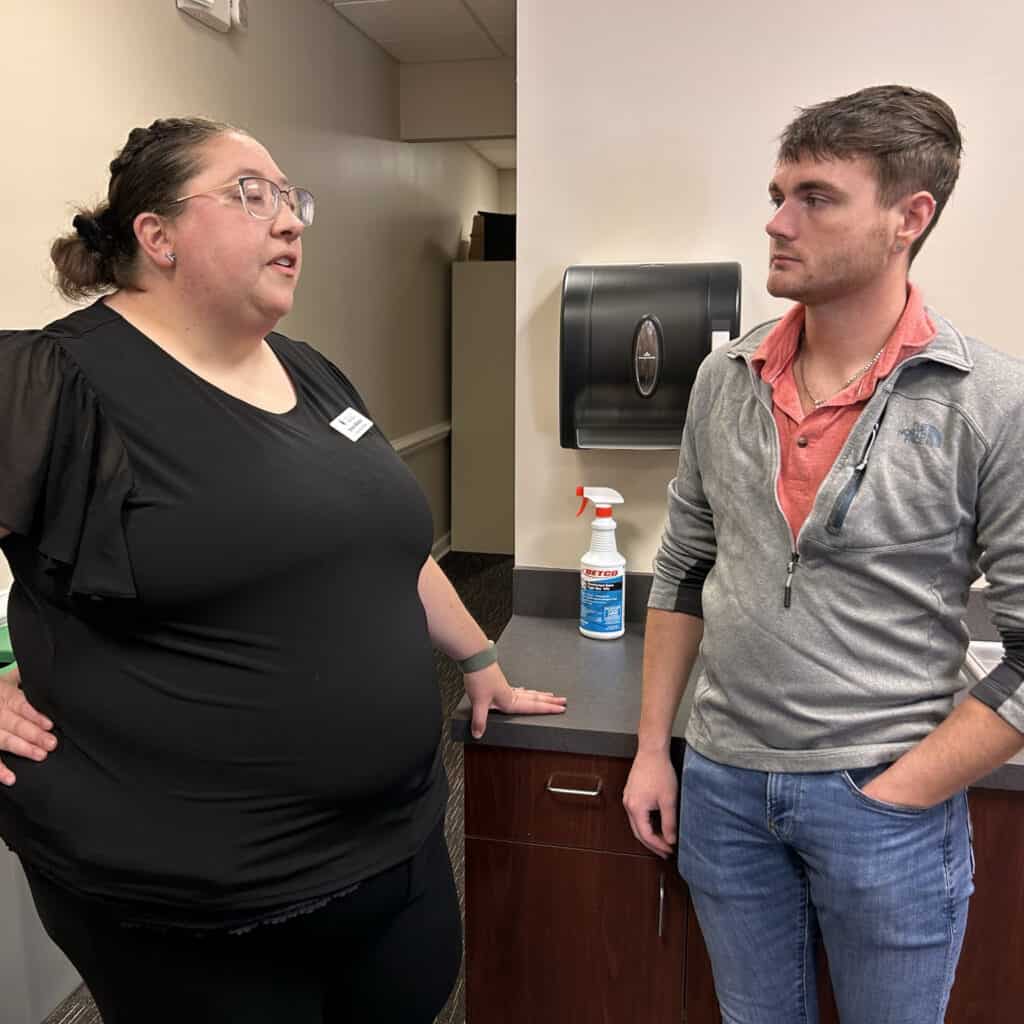CHARLOTTE — Wells Fargo lawyers and paralegals provided free legal advice to Legal Aid of North Carolina clients struggling with serious housing-conditions issues at a Lawyer on the Line pro bono event May 17 at the bank’s offices in Charlotte.
Legal Aid NC’s flagship pro bono program, Lawyer on the Line, connects clients with common legal problems to pro bono volunteers—lawyers, paralegals and law students—who, working under the supervision of Legal Aid NC attorneys, provide free legal advice over the phone. Volunteers can serve individually from their home or office, or as a group with colleagues from their employer or local bar association.
“Lawyer on the Line is a quick and easy way to spend an hour or two and feel like you’re directly helping someone,” said Mark Metz, Deputy General Counsel at Wells Fargo, who participated in the event.
Mark’s client was living in a home infested with mold caused by multiple leaks, problems that the landlord was not addressing. Mark advised his client, who was nearing the end of his lease and planning to move, to negotiate a resolution with his landlord that would compensate the client while avoiding litigation.
“It felt great,” Mark said. “So much of our typical work is long and drawn out. This was very quick and provided an immediate benefit to someone.”
Glenn Huether, Lead Counsel at Wells Fargo and co-coordinator of the bank’s pro bono projects in Charlotte, helped a woman living with mold, a broken lock on her front door and other issues threatening the safety of her family. Glenn’s advice to her client included making repair requests to her landlord in writing, taking pictures and calling local code enforcement.
“It felt very rewarding,” Glenn said, “particularly when she told me, ‘This has been so great. I’m so thankful. I’m so glad we talked. I really needed this!’ That made it feel so worthwhile.”
Janice Reznick, Deputy General Counsel at Wells Fargo and co-sponsor of the bank’s pro bono initiatives, said, “Wells Fargo is really committed to the communities in which we operate. We encourage everyone within our legal department—not just attorneys—to participate in pro bono, and there are plenty of opportunities for everyone.”
Speaking of her own motivation for championing pro bono, Janice said, “I think it’s important to help the community as lawyers and legal professionals. As a lawyer, being able to provide my legal knowledge and use my skills to help others is an incredible experience.”
Craig Baldauf, Executive Vice President and Deputy General Counsel at Wells Fargo, helped a client whose small house had no heating or air conditioning, roaches, electrical problems and mold—problems that the client has been trying to get fixed for four years.
“It’s easy to forget, particularly when you work for a company, that our problems tend not to be the problems faced by the average person,” Craig said. “It felt really nice to take a break from our corporate problems—which are important, but in a different way—to help somebody in the community who has been struggling for years to get a decent place to live. I left with a really positive feeling about the experience and my role in it.”
Kasasira Mwine, E-Discovery Project Manager for Wells Fargo, did a double shift of pro bono service on the day of the event. He handled a Lawyer on the Line case after attending court in the morning to handle a separate pro bono case for one of our clients.
Explaining his dedication to pro bono service, Kasasira said, “Especially in the housing arena, there’s so much that tenants are entitled to under law that they’re not aware of. It gives me a lot of joy to help tenants claim as much of their legal rights as they can. To me, it’s very important to provide that to people in the community. Every chance I get to do that, I’m going to be a zealous advocate for them.”
Natali Bollinger, Senior Paralegal with Wells Fargo, helped a client whose home had a broken water heater that was causing sewage backup, standing water on her lot, dirty drinking water, a skyrocketing water bill and other issues.
“My client has done everything right,” Natali said. “She’s paid rent on time, documented all the problems, taken photos and videos. My client hasn’t called code enforcement yet. We hope that code enforcement can decide if there are violations and put pressure on the landlord.”
Discussing why she volunteered to participate in the Lawyer on the Line event, Natali said, “It was something that was easy, a minimum time commitment, and provided an opportunity to really help out. Wells Fargo is amazing. The opportunities to give back and do pro bono are endless.”
Todd Stillerman, Assistant General Counsel at Wells Fargo and longtime pro bono volunteer, said, “The work that we do with our legal aid partners is all about providing security, stability and safety to families and children in our communities. The ability to have access to the law and access to legal remedies is crucial. Wells Fargo has recognized for a long time that providing that access is something we need to be doing. I get an incredible amount of support from my employer to do this work.”
Addressing the fears that attorneys may have about pro bono work being outside their professional comfort zone, Todd said, “I’m an investment bank lawyer. I’m not a litigator. I’ve done what I’ve done because I’ve had support from Legal Aid and the attorneys that work there. They’ve helped me do things that I never imagined I’d be able to do. No matter what your background is, no matter what your skill level is, no matter what your experience is, it only takes a little bit of courage to do this work.”
Other Wells Fargo volunteers who participated in the event are:
- Jose Bermudez, Lead Counsel
- Loretta Carty, Senior Counsel
- Gloria Fazzolari, Lead Counsel
- Annie George, Lead Counsel
- Sarah Hayden, Paralegal
- David Lamothe, Assistant Counsel
- Ryan Larkin, Managing Counsel
- Brittany Mullen, Senior Counsel
- Anna O’Neal, Managing Counsel and Senior Vice President
- Bryan Riddle, Senior Counsel
- Ben White, Senior Counsel
If you want to make a meaningful difference in the lives of North Carolinians in need, visit the Pro Bono section of our website to learn about our programs and sign up to join our mission for justice: legalaidnc.org/pro-bono.
Want to stay in the loop on pro bono at Legal Aid of North Carolina? Join our pro bono email list to stay connected: https://lp.constantcontactpages.com/su/iNkX2oL/probono.
Photo gallery
